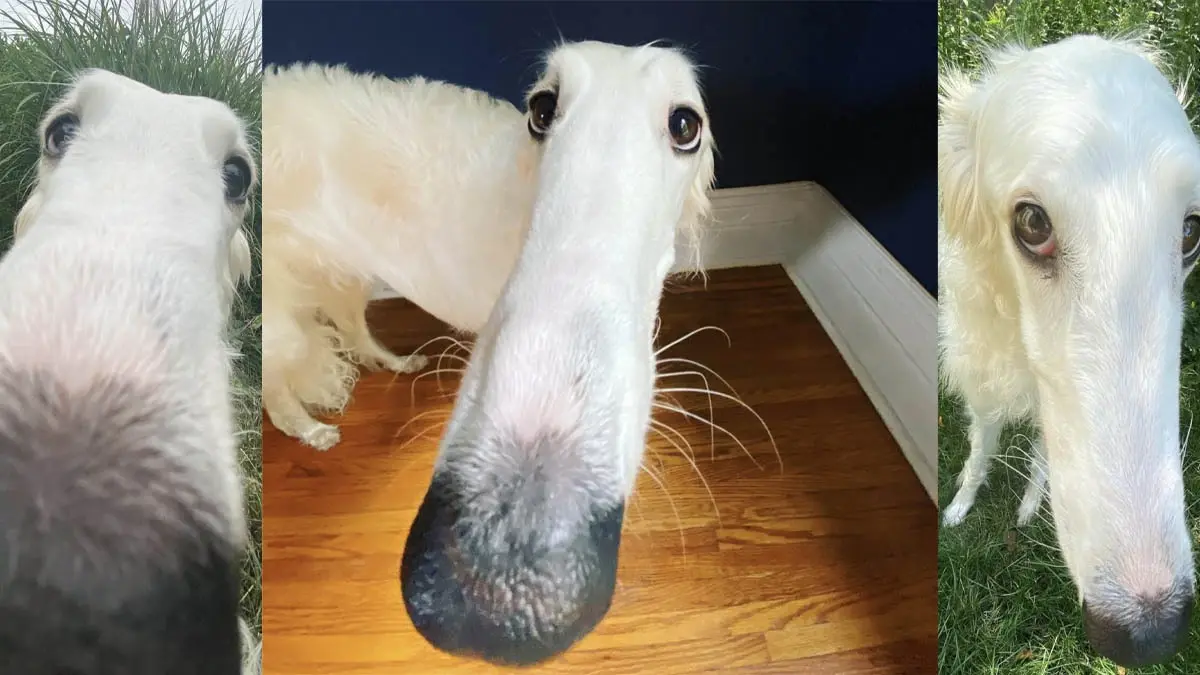I was into a choose your own adventure books when I was a kid, there was one in particular that you are told in the beginning that there is a perfect ending but you can’t get there by choice. There was no path in the book that got you to that page. You had to just decide to not follow the rules and turn to that page.
I think I remember that one, unless it’s a reoccurring element in choose your own adventures. It was about ice cream and parallel universes or time travel or something right?
Had aliens in it. They were abducting sentients from all over to try to see if anyone knew how to get to space-paradise.
You need a starship to penetrate the barrier at the centre of the galaxy.
It’s not the book that OOP was thinking of, but you’re probably thinking of Meanwhile by Jason Shiga.
Yep, that’s the one. Remember I picked it up in the library years ago because of the cover saying any path is correct. I remember If you open to the page not connected to anything it shows the main character riding a colossal squid with no context.
How would you know when to turn to that page though?
If it tells you at the start to turn to that page and you do, does it tell you the story from 80-90% of the way through? Or is it a totally new short story since you haven’t started yet?
Because it was on like page 24 and you read page 23. So you knew it was there you just couldn’t find a way to get there. Also the first sentence was something like “you figured it out!”.
Thats a very META choose your own adventure. I like it.
deleted by creator
Such a clever use of the medium. I love this sort of brilliance.
A moment of silence please for all the text in this image that’s been mangled by JPEG compression.
Thank you.
F
That’s the free will of the universe in action.
deleted by creator
To be unfunny:
The whole idea of a balls hitting each other universe went out the window when we hit the quantum era. We have had to adapt to a reality where matter is somehow a statistical phenomena, and the details are always hidden from us in one way or another. Entanglement is another confusing thing, and its super common - not just some rare phenomena in a lab, it’s more of a fact of particle interaction
So our brains are somehow statisical-chemical-electric sugar powered supercomputers that have entangled state. And the brain actually stretches across the body, with various chemistry being produced throughout
In short, nobody has any idea how brains really work, it’s way more elaborate than current AI. It’s also likely impossible to fully simulate a brain - it would have to BE a brain
There’s a separate question about the nature of randomness in the universe, but all we can know is that follows a normal distribution over time. It seems truly random from our point of view. Of course, who’s to say if God likes to fudge the numbers a little
Yes, but none of that refutes the argument that we lack free will. The trillions of interactions leading up to an ‘action’ on our part can be random, determined, or some mixture - but they still ‘cause’ our next action, rather than our 'free will ’ causing the action. If you believe in free will, you believe in a magical quality we possess which is somehow neither random (else it wouldnt be ‘will’) nor determined (else it wouldn’t be ‘free’)
I personally find all discussion around free will annoying. Whether or not I have free will I still have to decide to do shit. I can’t just go on autopilot.
It only feels that way 😃 But yes, there’s no escaping the feeling
I mean yeah, I don’t believe in free will, but in day to day life I still get annoyed at my friends when they can’t seem to make simple choices and feel best when I feel like I’m making good choices.
Imho our language hasn’t really caught up, someone mentioned the idea of distinguishing free will from agency which is intriguing, because at a fundamental level we still need to feel like we’re making choices in day to day life because of our how our brains are wired, but at the same time from a moral and philosophical truth standpoint it’s incredibly important to still consider the implications of free will not existing…
Society is just starting to wake up to the idea of “systemic issues”, not believing in free will forces you to consider all issues as systemic, something a lot more intellectually challenging but that ultimately reveals a lot more truth and comfort about the world, and imho provides a very strong moral foundation.
So if there’s more than 1 action that your brain can decide upon, does that mean free will because you have a choice, or no free will because you are confined within those finite choices?
There is no free will because who, what and where you are conditions you to make a certain choice every single time, and there is no will external to all that what you are and you experienced so far.
It’s kinda related to the multiverse theory, where every choice or chance creates a new version of reality and if you had made another choice it wouldn’t be YOU.
At least that’s what they argue. I also think of it this way.
When you phrase it that way, though, it makes the ‘you’ part stand out and in that regard you do have free will to do as you choose, it’s just an internal lack of ‘ethereal choices’ we’re lacking. The fact that if the choice were somehow “replayed”, you would make the same choice is kind of meaningless since we don’t experience that….the point at the quantum/chaos theory level is that there is no way to look at the current set of circumstances and say with any degree of certainty what your decision will be. Whether this involves some magic autonomy ‘above’ the chemical and quantum nature of your brain is just semantics as far as whether we’re the one ultimately in the drivers seat or whether we’re just experiencing things from what appears to be behind the wheel. Maybe think of it as sitting on the lap of the universe while we pretend to hit the gas and shift the gears.
It depends on the context of the conversation though. Free will and whether or not it exists has massive implications on aspects of society like criminality and the justice system.
If we have the statistics showing the crime tracks with poverty, lack of education, etc. and we don’t believe that that person is making a real “choice” in their actions, then we have to reflect on what purpose punishing them is even serving. The idea of punishment as retribution, or punishment beyond reforming them becomes nonsensical. You can imagine removing someone for the safety of others, but punishment for the sake of moral punishment or salvation (as advocated by many religious types) makes no sense.
Neither. The is no free will. You will think about which choice to make, and you’ll make a choice. But not only your choice, but also all of your thoughts about what to choose, were the inevitable result of everything that has happened in the universe leading up to that point.
It feels like you could have thought different thoughts and come to a different conclusion, but actually you couldn’t have.
Look at it this way. A supernova is the end result of an unimaginably large number of complex interactions, some of which may have been random. But there’s no reason to suppose any free will is involved. Your brain is not, philosophically speaking, meaningfully different
Ridiculous, this is like some facebook post from my religious uncle. Brains are quantum entangled with the body? Bro you don’t even know what that means or that information is not preserved in entanglement
I almost want to ask for a source but I shutter to think what might be dredged up
Yeah, well the brain actually stretches across the body. With various chemistry being produced throughout. So how do you like them quantum apples?
What? Every chemical reaction within every neuron is still governed by physics. Just because we don’t understand how the physics works doesn’t mean we get to throw physics out the window. Even then, even if we ignore the physical aspect of it, from a philosophical standpoint, you can easily argue that free will doesn’t exist.
Let’s say for a moment that I’m wanting to go get dinner somewhere, and as I’m walking there, I start to cross a street and get hit by a bus. I wake up and Death is laughing. Wiping tears from his eyes he says, “man, that’ll never get old. Listen, I’ll give you a second chance. I’ll rewind time to the moment before you decided to cross the street without looking, and if you make it across, I’ll leave you alone.” I take the offer (who wouldn’t), and time gets rewound. I’m now standing at the curb, getting ready to cross the street, with no memory of the events that transpired after I stepped off the curb. Will I try to cross the street again, or will I decide not to?
spoiler
The answer is that I’ll cross the street again. Why? Time got rewound. I don’t remember getting hit by the bus, nor do I remember talking to death. There’s no reason for me to avoid the street because I have the exact same information I had the last time, so there’s no way for me to come to a different conclusion about which path I should take. I wake up and Death is laughing.
Edit: how the fuck do spoilers work? They don’t show up on liftoff
Yeah, that’s my understanding of it, too. If you go back in time to any point in your life, you’ll be exactly the same, with all the same experiences and the exact same thoughts running through your head. Every single atom in the entire universe will be exactly the same as it was at that exact moment, so of course you’ll make the exact same decision.
The universe as a whole is just a huge, insanely complicated chemical reaction. Ultimately, we’re free to make whatever choice we want, but that choice was what we were always going to choose.
It’s like how flipping a coin or rolling a die isn’t really random - if it were possible to gain an insanely in-depth understanding of all of the forces acting on the object, and you had the power to manipulate your throw to give it the exact force needed, you could have it land exactly how you want it to every time. Instead, we call the act random because it’s too complicated for us to manipulate it effectively.
To be clear, I’m not a scientist, so I was trying to avoid getting into quantum physics, however if I’m not mistaken, there are some processes on the quantum level that seem to be irreversible or wholly unpredictable. As such, going back in time wouldn’t guarantee the same outcome on a quantum level. However, afaik the effect that it would have on humans is purely speculative.
Additionally, it could be that our understanding of quantum phenomenon is similar to our understanding of the universe back when astrology was all the rage and people believed the stars and planets were unpredictable. It could be that we’re working from the wrong frame of reference and as a result, it only appears as though things in the quantum realm are hard to predict if not straight-up unpredictable.
deleted by creator
The spoiler works for me on memmy
I don’t wanna get into a whole thing about it, but physics makes no guarantee that events will play out the same way twice under time. The stochastic nature of the universe is that every particle interaction creates a whole universe of possibilities, virtual particles, and the tail ends of that possibility are almost endless. Physics may easily break its own “rules”, with small probability
So your mechanistic view is that if you rewind time, all the billiard balls will get hit the same way. I my probabalistic view, something new will happen. Of course, we can’t time travel, so the whole hypothesis is pointless and undefeasible
Do you have anything to back up this belief? I’m genuinely curious. Afaik the idea that we’re affected by quantum phenomenon is speculative. Even so, it wouldn’t necessarily grant us free will. Even assuming that we’re directly affected by quantum uncertainty, it doesn’t mean we have free will unless we’re able to control how it affects us. Our neurons still have to follow the laws of physics, even if the particles within them occasionally appear to ignore them (and that’s assuming we won’t eventually discover that there are rules governing how and when particles are seemingly able to ignore physics).
At best I think you could say that we have free will at the individual level, even though in the background that free will is driven by chemicals and quantum interactions. Just like a car doesn’t have free will because it’s inanimate, it also isn’t solely jostled around by the environment because it is powered and steered in its own self contained manner. You can keep going down a level and point to this choice being driven by this neuron firing or that sensory input overriding some reflex, but since free will is just a an English phrase coined long before we had any idea of the mechanics, is fair to say that at some level we’re driving our lives in comparison to any external force, and that predestination is so incomprehensible at our level as to be meaningless and “that” is free will, while at the same time there’s nothing above or outside of our consciousness and physics literally steering our mind against the stream of physics allowing us to “decide” to make a decision, rather than simply making a decision based on the infinite flowchart the universe is following.
All of that, of course, is outside the argument of whether all of physics is really predetermined or if it really is just infinities relative dice rolls every time one quantum bundle interacts with other.
Yeah but you are still going to die. I don’t get how everyone decided that just because we can’t know anything means we can know nothing.
I can’t tell you what the weather will be like on this day ten years from now exactly, but I can tell you that it highly likely to be hot and dry. It might not be possible to ever fully fully predict what a human would do but some level of prediction will always be possible and is gradually rising over time. Hence the social sciences.
Looking past the technobabble…
The implications of quantum mechanics just reframes what it means to not have free will.
In classical physics, given the exact same setup you make the exact same choice every time.
In Quantum mechanics, given the same exact setup, you make the same choice some percentage of the time.
One is you being an automaton while the other is you being a flipped coin. Neither of those really feel like free will.
Except.
We are looking at this through a kind of implied metaphor that the brain is some mechanism, separate from “us” that we are forced to think "through’. That the mechanisms of the brain are somehow distorting or restricting what the underlying self can do.
But there is no deeper “self”. We are the brain. We are the chemical cascade bouncing around through the neurons. We are the kinetic billiard balls of classical physics and the probability curves of quantum mechanics. It doesn’t matter if the universe is deterministic and we would always have the same response to the same input or if it’s statistical and we just have a baked “likelihood” of that response.
The way we respond or the biases that inform that likelihood is still us making a choice, because we are that underlying mechanism. Whether it’s deterministic or not it’s just an implementation detail of free will, not a counterargument.
Absolutely. And to add to that: quantum mechanics doesn’t disproof determinism either. The fact that we use a probabilistic model to some success does not mean the universe has a probabilistic nature. Perhaps the process that determines the outcomes of quantum mechanics is a well behaved random function that can be understood in principle, but is computationally irreducible.
Cool so you have awareness of and/or control over the quantum particles that make up the baryons that make up the matter of your brain? No? Then you don’t have free will.
Even just from a biological perspective the idea of free will is iffy.
Any decision you make today is influenced by a chain of decisions going back to the beginning of all decision making. Everything from what you had for breakfast to what your great grandfather had for breakfast to what tiktaalik had for breakfast has affected your own individual biology and internal chemistry to lead you to any choice you’re about to make. Even locally there’s so much going on in our bodies that we’re not aware of and don’t have control over and which are influenced by things we don’t have control over that directs our daily lives in profound and complex ways.
The eminent Robert Sapolsky is able to put this idea into better terms than I am if anyone wants to peek into this area further.
To be even less funny the ideal gas law is a single result from a subject that used to fill at least one huge dense textbook, produced in the 19th century. It is a statistics based branch of science.
are somehow statisical-chemical-electric sugar powered supercomputers that have entangled state.
Citation need on the entanglement part.
Sure, we don’t know everything and quantum mechanics deeply relies on statistics, but you’d be clutching at straws if you want to use that to hold on to the notion of free will or a god.
Not saying that there are no deep mysteries left and that neuroscience is right, but the notion of a free will is fairly obviously the last hold out of the geocentric model of the universe.
I like that idea, that quantum entanglement and free will are related :)
They aren’t
That’s joyless of you
You should join scientology. They’ve got many interesting ideas you might like :)
The religion started by a science fiction author? Yeah, I’m sure there’s lots of cool ideas in there, but that doesn’t mean they’re believable. Keep that superiority complex high though
From all the discussions I’ve read about Free Will, I’m convinced the term actually doesn’t mean anything at all. What would a world with free will look like? What would a world without free will look like? How would a person with/without it behave? Would there be any tangible difference between them?
As far as I can tell, free will is supposed to be a property of a person, which may or may not have something to do with physics, either everybody has it or nobody has it, and nobody has a definition that would let them measure it (without reducing the question to a disagreement over semantics). I think that whether someone believes in free will is a trick question; you can’t believe or disbelieve in a something that isn’t even a real concept to begin with.
It’s like the “are we living in a simulation” question. It’s impossible to prove or disprove and ultimately does not affect our lives in any way that we can control. Just a thought experiment.
It may be possible to prove if one day we can prove whether universe is or isn’t deterministic.
It can in theory be disproved - if we ever manage to prove that universe is deterministic, free will by definition cannot exist.
Not necessarily, even if everything is determined randomly we still end up without free will, because then it’s not us that somehow introduce the randomness from both outside and within the system, it is randomness itself that makes us
Nah, that’s just your thought process. As far as I know, if universe is proven to be undeterministic, free will remains unproven and undisproven.
Eh, maybe, maybe not.
What is the definition of free will that is only possible in a non-deterministic universe? Is non-determinism the only requirement for a universe to qualify as having free will?
What is the definition of free will that is only possible in a non-deterministic universe?
If the universe is deterministic, every particle has a mathematically determinable path, meaning you can fully predict where each particle will be in a billion years. Our thoughts and everything are carried by neurons in our brain, as is our will. So if the universe is deterministic, every neuron had to fire at exactly the same moment it did and it could’ve never happened otherwise, meaning every thought and action is predetermined.
Is non-determinism the only requirement for a universe to qualify as having free will?
No idea.
Is non-determinism the only requirement for a universe to qualify as having free will?
He’s not making any claims about that argument. He is saying that determinism implies no free will.
Edit: meant to reply to Chicken.
meaning every thought and action is predetermined.
Sure, but that isn’t a definition of free will, and it is unclear why this should have something to do with free will. Whatever it is, why can’t you still have it even as a part of a deterministic system? A definition that allowed this wouldn’t be surprising to me, and some people do seem to support such definitions.
No idea.
This reinforces my point; I don’t think people talking about free will have a very specific idea of how what they are talking about relates to anything else.
I find it very clear. If you can’t really decide because everything was already decided, you don’t have free will. A definition that grass is meat wouldn’t be surprising to me either. It wouldn’t be correct, but it wouldn’t be surprising. I wasn’t talking about what free will is, I was talking about one specific case of what it isn’t.
If you can’t really decide because everything was already decided
You can demarcate the boundary of decisions however you like. My decisions can still be called decisions while being part of a larger system that those are inherited from, or not, depending on how you arbitrarily choose to use the word. Either way it doesn’t change what is actually happening.
The problem with “free will” is that it isn’t used to make claims about what is actually happening. It is undefined, just a vehicle for semantic assertions.
I wasn’t talking about what free will is,
I don’t think you can, because it isn’t anything.
Are you trying to sound really deep? “I don’t think you can, because it isn’t anything.” - what kind of pseudo-intellectual stuff is that?
Disagree. Look up compatibilism
There are so many cases like that. For example, define intelligence. If you try to, you’ll run in loops of equally undefined abstract concepts.
And that’s basically what philosophy is about.
Even though intelligence isn’t precisely defined, people still have enough of an idea about it to have some consensus about how it should be measured. An animal that keeps running into a wire fence trying to get through is showing less intelligence than an animal that notices an opening a few feet away and walks through that instead. Free will is much less defined than even that.
Well, intelligence is defined as what the intelligence test measures.
But lets try a different one: sentience. Or consciousness.
Well, intelligence is defined as what the intelligence test measures.
Right, so where’s the Free Will test?
sentience. Or consciousness.
IMO these are a bit worse defined than intelligence, but still more so than free will. I don’t think it would mean anything to say I don’t believe in free will, but when I say I don’t believe in consciousness, the delusion I deny is one people actually have. The state of your brain is only that, a state, but people are possessed by an overpowering intuition of having experience that is independent from the physical reality and data structure.
Free will on the other hand isn’t even a delusion, it isn’t anything more than rhetoric.
Same as conciousnes. That concept only consists to differentiate between groups of living beings to justify eating some of them. (Disclaimer, I too eat meat, but using conciousnes/sentience as a justification is just a rethoric, or more plainly a lie).
I think the the divide in this is Thought vs Action. You can choose to think of whatever. Imagine things whether possible or not.
To be able to act on those thoughts could be an entirely different thing.
But even with thoughts, we’re still limited by our humanity. For you and I, we could likely find common ground on many things. Come to similar conclusions. But trying this with any other animal and it all falls apart.
Absolutely right. There are of course definitions of free will that would grant us free will, like one could argue that a traffic light has free will, but there is no reason to believe that humans are not just reducible to a set of (complicated) biological processes. People of all religions and even plenty of atheists believe that somehow human consciousness is something special that transcends the material laws of the universe. That is what most people still seem to think, so it seems. Even I would dare to say that most people, including you, who know that this is likely false still have some deep rooted belief in the illusion. You may not believe in truly free will, but that is only the top of the iceberg part of your mind. The rest is deeply invested in the notion.
Interestingly Buddhists have as one of their central tenets that there is not only no free will, but not even a self. The idea of a self is nothing more than an idea. It has a function, but is inherently an empty construct. What it means to be a human can only be experienced in the moment. If one looks closely enough at that experience, the illusion of free will can be relented even at its deepest root. Paradoxically, I can report, this is incredibly freeing.
What is this from?
Gave me a chuckle.
The Choose Your Own Adventure series of books, iirc.
Is that basically a text adventure in book form, but with less features and more page turning?
Don’t sass, these were the shit back in the day.
They sued Netflix over that black mirror episode too.
it’s intriguing, reminds me of videogames where the storyline changes depending upon your choices
Sam Harris and Jay Garfield have a great podcast about free will. Saint Augustine came up with the idea of free agency in order to get God off the hook for Eve’s fall. Fascinating stuff.
Sam’s explanation of free will is compelling and difficult to argue against. The way we feel about it reveals something about us. He cites examples of people who found comfort in the idea of an absence of free will but also people who are terrified of the idea. Meanwhile, the universe hasn’t apparently changed. The more I think about this stuff, the more I come to believe that we construct the world in our imaginations and fit the data to that model, not the other way round. We see what we want to see.
There’s also a third group of people who find the absence of free will neither comforting nor terrifying, but just don’t give a fuck. The absence of free will is just a simple fact, and it doesn’t have any impact on my life whatsoever. I’m still doing what I was always gonna do and my brain will still produce the feeling that I’m in control of myself and my life, just like everyone else. I don’t understand what there is to even have feelings about on the matter.
I would argue the vast majority of people are like this, this is the neutral position. You act in the world as if the implications of all of this are meaningless.
Even if you believe there is no free will, it doesn’t change how you behave in any significant way, because your are the sum total of your parts.
The Dan Dennett’s and Sam Harris’ of the world are having an argument that ultimately means nothing to us because we’ll act the same way regardless of this information.
Yeah. To me it’s not even a fun philosophical exercise like thinking about what came before the big bang or if there is anything ‘outside’ of the universe. I feel like it’s a debate from before modern physics. Like, 500 years ago there was a lively debate on the matter of free will in a religious context. And I guess the only way to still believe in free will and its contradiction with the laws of nature is when you believe in God. But for everyone else it’s just so damn obvious free will can’t exist and it’s just human ego wanting to pretend we have control. ‘Free will doesn’t exist’ is as obvious and unimpactful of a fact to me as 2+2=4.
I disagree with that view, mostly because I don’t think that free will means completely random. Imagine the goldbach conjecture, there are two simple rules, divide by two if even, multiply by three and add 1 if odd. If you take any number, it is impossible to determine when that number will enter a loop, unless you go through the whole process. The brain is like that, but a trillion times more complicated. Is the brain deterministic? Yes. But does that mean you can determine what choice someone will make? No.
It does have implications.
Most of humanity believes in some form of next life where they will have to face the implications of what they did in this life. If you are a determinist you either have to accept really depressing Calvinism or conclude that the system makes no sense. Can you really imagine the world being the way it is if billions of people admitted that there was no afterlife or they accepted that literally no actions would impact it? I am willing to bet at least some things would change.
What would a criminal justice system look like where we accepted that A —> B? Precrime? Livestream scared straight programs? Cutting off all rehabilitation for people serving terminal sentences? I am not sure exactly how it would play out.
What about day-to-day social norms breaking? If someone broke the rules would we make a point to call it out and punish them publicly since we believe that the main purpose is to prevent others from copying them?
The way we feel about it reveals something about us. He cites examples of people who found comfort in the idea of an absence of free will but also people who are terrified of the idea.
I was personally raised agnostic, and after a long existential road including at least one severe crisis and mindfulness / CBT therapy, came to found the idea of a lack of free will be to be incredibly comforting.
My generally similarly minded father, however, seems to find the idea pretty terrifying.
To me the lack of free will and physics of the universe provides a comforting structure that I lacked for life, to him, as someone raised Catholic with a lot of moral teachings about choice, I think it represented a terrifying teardown of the underlying foundation that he’s known and built his life on.
We see what we want to see.
We were visiting friends, long drive. Decided to stop at a plaza to get something to eat. A truck was blocking me and then moved. Within about a second
Me: oh nice hamburgers
Wife: sushi, grand opening
4 year old daughter: ice cream!
I slammed my foot on the brake. Sure enough right there was a hamburger place next to a sushi place (with grand opening sign) next to an ice cream place. I just sat there trying to understand the implications of what just happened. 3 people were shown the same thing at the same time and each of them saw exactly what they wanted to. It was like the poem about the blind men examining the elephant but freaken real.
Never going to forget that moment.
deleted by creator
It was predetermined that I replied to your comment.
deleted by creator
predeterminism or fatalism is illogical.
https://breakingthefreewillillusion.com/determinism-vs-fatalism-infographic/
Removed by mod
That’s not an argument for free will. Chaos is just a mathematical property of certain systems.
We can mathematically prove that the complexity of certain systems means that their outcomes are unpredictable if you look far enough into the future because of exponentially how many possible outcomes there are.
That’s all chaos theory is, the idea that even if the universe behaves according to deterministic or probabilistic physics, and we could map the position and properties of every single particle in the universe, we still wouldn’t necessarily be able to predict the future in X years.
That’s not an argument for free will though, tons and tons and tons of relatively simple systems (like the famous three body problem) that do not involve free will produce chaotic outcomes.
Thanks for bringing up Sexy Beefcake Dr Malcolm.
Right emergence. That doesn’t mean that you couldn’t in theory predict exactly what a human being would do if you had perfect measurements.
To me we should stop worrying about free will and worry about agency. You have more agency than a slave, a billionaire has more than you. We know that people have agency.
turns to page 73
A team has been dispatched to your location.
Slams book shut in disgust
When I first played Life Is Strange I already knew about the choice at the end, but without context it didn’t really mean much to me. I thought that over the course of the game I’d come to prefer one option over the other.
By the time the final mission started I was still very much on the fence, so I went and choose the third option: Closing the game and leaving it’s characters in a limbo of uncertainty
Oooooo You cannot go against nature Because when you do (Go against nature) It’s part of nature too
Our little lives get complicated It’s a simple thing Simple as a flower And that’s a complicated thing
Pretty sure that “free will” is just our monkey brains attempting to rationalize what we mostly do based on instincts.
For anyone who’s skeptical about ‘free will’ being illusion, please read consider this book “Free Will” by Sam Harris, it will change allot.
Edit: there is another one, “Predictably Irrational”. This does not deal with the matter directly but can help developing a opinion on the matter.
oh yeah that’s good content baby
Due to quantum mechanics, we know this is not true. There is a level of uncertainty and probability and the smallest level of our universe. The deterministic model of the universe has been put to rest a century ago.
Although it’s worth mentioning that randomness doesn’t make “free will” real.
I chose the worst possible time to read this whole comment section. I’m high as fuck.
Yup! But i don’t think we can use the idea that the universe is predetermined.
I did see another commenter mention super determinism but i don’t have enough knowledge on it to comment on it and its relevancy.
There is a level of uncertainty and probability and the smallest level of our universe. The deterministic model of the universe has been put to rest a century ago.
This is true, what we instead have is a probabilistic model of the universe, which still obeys very clear statistical rules and probabilities, also seemingly leaving no room for free will.
A dice roll doesn’t have more free will just because it’s random.
The fact that we have a probabilistic model of the universe does not proof the universe is non-deterministic. It may just be computationally irreducible and therefore best modeled through probability. Quantum mechanics’ use of probability does not proof that the universe throws dice. There are many explanations possible, but the short of it is: we don’t know and quantum mechanics doesn’t give us the answer.
No. On average things are average. So while not everything can be fully predicted you don’t usually need to. A laser, a transistor, a diode are all devices that depend on QM theories being true. We have lasers, we have screens, we have neat flashlights, we have computers. Just because we can’t say everything doesn’t mean we can say nothing. Every time your lungs fill it is only because vacuums are unlikely, not impossible just unlikely.
Uncertainty doesn’t save free will, at most it sets limits to it.
I think you are not getting it quite right. Those “low level” things are predetermined. Where you get the uncertainty is that there is always a bigger or smaller picture.
Determinism and uncertainty are both perfectly compatible with each other.
- if you agree to this hypothesis, turn to page 72 70% of the times
- if you disagree, turn to page 72 40% of the times
- if you’re viewing this through polarized glasses, turn to page 72 80% of the times
- if you’re an electron, rotate 360° to page 72
Unless superdeterminism is true. But does it make a difference anyway? “Free will” is overrated.
The fact that quantum mechanics models physical processes stochastically does not mean that there is free will neither that the universe is non-deterministic. This statement is strictly true.


















